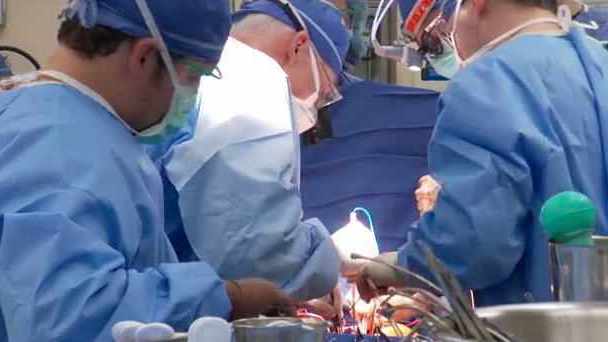-
In the Loop: After heart transplant, surgeon returns to operating room

After a heart transplant in 2018, Dr. Robert Montgomery, a surgeon at NYU, turned to an experimental protocol at Mayo Clinic. The new drug eliminated his tremors and allowed him to return to surgery.
When he was just 29, Robert Montgomery had a defibrillator placed in his chest to guard against the symptoms of familial dilated cardiomyopathy, a genetic form of heart disease.
Montgomery was no stranger to the condition, The Wall Street Journal reports. It had taken the life of both Montgomery's father and a brother. Not only did he worry he'd suffer the same fate, he also feared the disease and his defibrillator might keep him from his dream of becoming a surgeon. "It wasn't clear back then whether the device would interfere with operating-room equipment," he says.
The defibrillator saved Montgomery's life "many times." What it didn't do was stand in the way of him becoming a surgeon. He's currently director of New York University's Langone Transplant Institute in New York City. "Surgery is so important to me," Dr. Montgomery tells the paper. "The operating room is the place where I feel kind of the most at home. I fought really hard to become a surgeon … and stay in the game and now I had this second challenge and it was really important that I overcome that."
That second challenge was a heart transplant in 2018 that was necessary after "a series of cardiac arrests and life-threatening arrhythmias." Just two weeks after his heart transplant — performed by colleagues — the Journal reports that Dr. Montgomery "returned to work part-time. Three months later, he resumed seeing patients."
Read the rest of the story.
________________________________________________
This story originally appeared on the In the Loop blog.







